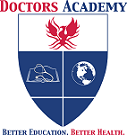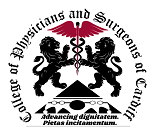Annual Revision of High-Yield Topics for Year-End Exams and Progress Tests:
Focusing on All Surgical Subspecialities, Cancers, Trauma and Basic Sciences
(Aimed at Medical Students in Year 2, Year 3, Year 4 and Year 5/Final Year)
Saturday 28th May 2022 (0830 – 1830 hours) and Sunday 29th May 2022 (0830 – 1830 hours)
Lecture Theatre 1, University Hospital of Wales and Cardiff University, Heath Park Campus, Cardiff
About
This highly popular and reputed consultant-led and consultant-delivered annual revision course for year-end exams, progress tests, OSCEs and ISCEs will focus on only the most pertinent information required to gain high marks and enable any medical student to significantly increase his/her chance of scoring highly in the year-end exam or improving his/her progress test score, regardless of previous performance. The highlight of the course will be the provision of key information and keywords required to correctly answer SBAs and MCQs which broach high-yield topics. By enhancing the end-of-year marks, one will significantly improve his/her chances of winning prizes, intercalating or securing his/her first-choice job upon qualification.
The course is calculated to be worth 120 hours of individual learning.
The use of electronic devices (such as laptops, tablets and phones) to take notes is not permitted at this course. The course has been structured in such a way to encourage discussion and reflection, and it is based on the discussion of a number of cases and case-based scenarios as tested in the exam. There are no lectures from which to take notes; the discussion of cases and case-based scenarios is intended for dialogue and engagement. Attendees are, therefore, not permitted to use any electronic devices for any reason during the sessions. Upon arrival at the course, you will be given a workbook in which you can write notes. You may also bring your own notepad and pen to write any additional notes if you wish.
Course Organiser
Miss Clare Carpenter, BSc, MBBCh, MRCS, FRCS(T&O)Consultant Paediatric Orthopaedic Surgeon
University Hospital of Wales, Cardiff
Topics Covered
- Abdominal aortic aneurysm
- Abdominal wall hernia
- Abdominal wall defects in neonates (gastroschisis and exomphalos)
- Achalasia cardia
- Acid-base imbalance (metabolic and respiratory acidosis/alkalosis) and management
- Action of adrenergic receptors
- Acute (adult) respiratory distress syndrome
- Acute abdomen (assessment and management)
- Acute tonsillitis and epiglottitis
- Addison’s disease
- Antibiotics and vaccines post-splenectomy
- Appendicitis
- Arterial ulcers
- ASD, VSD, Tetralogy of Fallot
- ATLS principles in trauma management
- Axillary, median, radial and ulnar nerve injuries
- Back pain, disc prolapse, sciatica
- Barrett’s oesophagus
- Bell’s palsy
- Benign paroxysmal positional vertigo
- Benign prostatic hypertrophy
- Bleeding and coagulation
- Bone tumours
- Brainstem strokes
- Breast pathologies (benign)
- Burns (assessment and management)
- Calcium metabolism
- Cancer metastasis
- Cancers of the breast
- Cancers of the colon
- Cancers of the liver and pancreas
- Cancers of the lungs
- Cancers of the oesophagus
- Cancers of the prostate
- Cancers of the rectum
- Cancers of the stomach
- Cancers of the testis
- Cancers of the thyroid
- Cardiac tamponade
- Cardiogenic shock
- Carotid artery disease
- Carpal tunnel syndrome
- Cauda equina and conus medullaris syndrome
- Cerebral autoregulation
- Cerebral strokes
- Common peroneal, tibial and sciatic nerve injuries
- Compartment syndrome
- Congenital diaphragmatic hernias
- Congenital hypertrophic pyloric stenosis
- Conn’s syndrome
- Coronary artery disease
- Cranial nerve palsies
- Cushing’s disease
- Cushing’s syndrome
- Cutaneous lumps and disorders
- Cutaneous malignancies
- Deep venous thrombosis
- Diabetic foot ulcers
- Diverticular disease
- Dysphagia (causes and management)
- Ectopic pregnancy
- Enteral and parenteral feeding, and TPN
- Epididymo-orchitis
- Epistaxis
- Extradural and subdural haemorrhage
- Facial nerve palsies (UMN and LMN)
- Femur fractures
- Flow of CSF and composition of CSF
- Fluid balance and fluid replacement therapy
- Fractures of the clavicle, humerus, wrist and scaphoid
- Gallstones and gallbladder pathologies
- Gastroesophageal reflux disease
- General trauma
- Giant cell arteritis
- Gout and pseudogout
- Hirschsprung’s disease
- Hydrocephalus – congenital and acquired
- Incarcerated and strangulated hernia
- Inflammatory bowel diseases (Crohn’s, ulcerative colitis) – management
- Inguinal and femoral herniae
- Inguinoscrotal swellings
- Intussusception
- Local anaesthetics
- Malignant melanoma
- Malignant otitis externa
- Management of sepsis and septic shock
- MEN syndromes
- Meningitis – bacterial, viral and CSF findings
- Myasthenia gravis
- Neck triangles and lumps
- Necrotising fasciitis
- Neuroendocrine tumours
- Neurogenic shock
- Ophthalmoplegia
- Osteoporosis
- Otitis media
- Paget’s disease of the bone
- Pancreatic pathologies
- Paraneoplastic syndromes
- Patent foramen ovale
- Pericarditis
- Peripheral vascular disease
- Pharmacology of local anaesthesia
- Pheochromocytoma
- Pneumonia
- Polymyalgia rheumatica
- Pressure ulcers
- Pulmonary embolism
- Ramsay-Hunt syndrome
- Renal autoregulation
- Renal calculi
- Renin-angiotensin system
- Rheumatoid arthritis and osteoarthritis
- Ruptured oesophagus
- Shoulder pathologies
- Spinal cord tracts – ascending and descending
- Splenic injury
- Subarachnoid bleed
- Swellings of the salivary glands (parotid and submandibular)
- Tension pneumothorax
- Testicular torsion
- Thyroid pathologies
- Tuberculosis
- Tumour markers
- Types of colectomies
- Types of stomas
- Use of inotropes
- Varicose veins
Quick Information
| This event is fully subscribed. To secure a place due to last minute cancellation or to enter the waiting list, please contact us on courses@doctorsacademy.org.uk |
|
|---|---|
| Date | Saturday 28th May 2022 (0830 – 1830 hours) and Sunday 29th May 2022 (0830 – 1830 hours) |
| Venue |
Lecture Theatre 1, University Hospital of Wales and Cardiff University, Heath Park Campus, Cardiff |
| Course Fee | Free for UK Medical Students (A fully refundable deposit is required. Details available upon registration). |
| Closing Date | Places will be offered on a first-come-first-served basis and therefore we are unable to provide a precise closing date. |
| No of Places | 460 |


